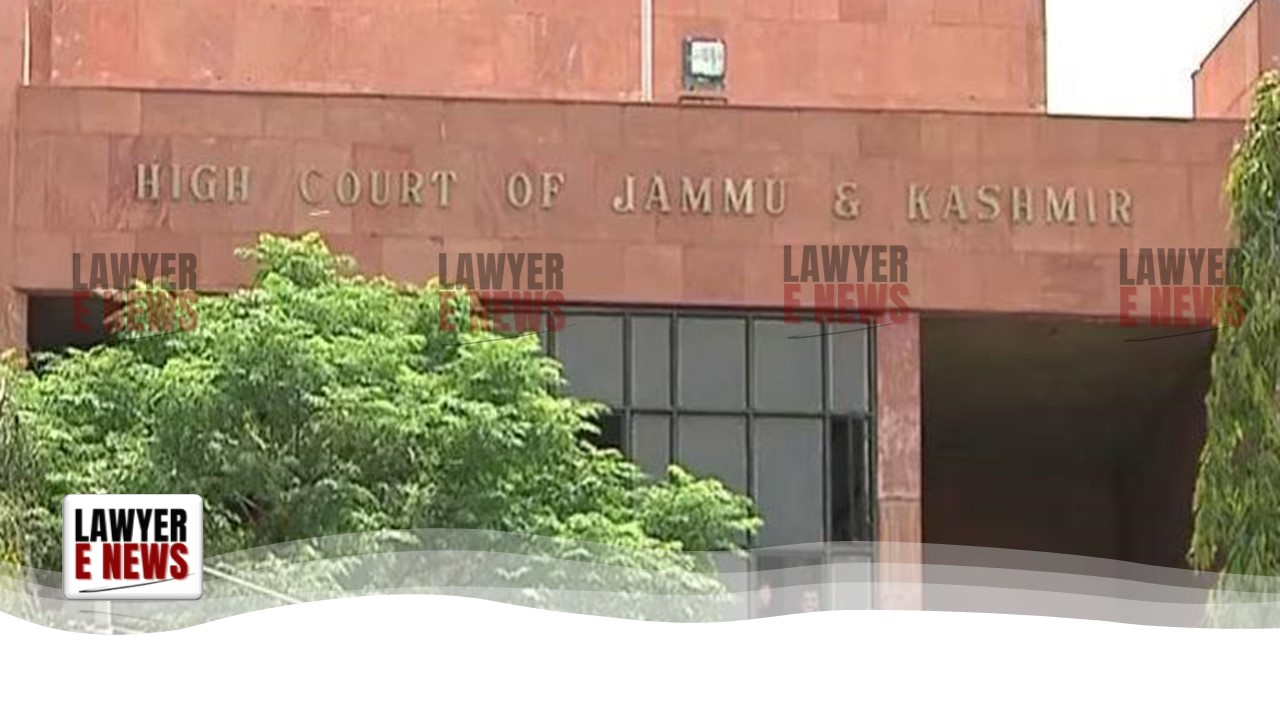-
by Admin
15 February 2026 2:16 AM



Jammu & Kashmir High Court dismissed the appeal filed by Pritam Singh and others, challenging a land acquisition award under the repealed Jammu and Kashmir Land Acquisition Act, 1990. The court upheld the earlier judgment by a Single Judge, who relied on the Supreme Court's ruling in Bharat Petroleum Corporation Ltd. vs. Nisar Ahmed Ganai (2022), affirming that land acquisition proceedings initiated under the 1990 Act would not lapse with the introduction of the Right to Fair Compensation and Transparency in Land Acquisition, Rehabilitation and Resettlement Act, 2013.
The case originated from the acquisition of land for constructing a 135-foot-wide composite bundh on the Indo-Pak Border, initiated by a notification under Section 4(1) of the Jammu and Kashmir Land Acquisition Act, 1990 in May 2019. Before the land acquisition process could be completed, the 2013 Land Acquisition Act was enforced in Jammu and Kashmir following the implementation of the Jammu and Kashmir Reorganization Act, 2019. Despite the change in law, the authorities proceeded under the 1990 Act, publishing the final award in March 2021.
The appellants contested the award, seeking to quash it and arguing that the acquisition should be governed by the 2013 Act. They filed a writ petition, which was dismissed by the Writ Court, leading to this appeal.
The appellants argued that with the enforcement of the 2013 Act, the 1990 Act ceased to exist, and therefore, the final award should have been made under the 2013 Act. They also contended that the Supreme Court's ruling in the Nisar Ahmed Ganai case, which upheld land acquisitions under the repealed 1990 Act, was per incuriam—a judgment given without considering all relevant legal provisions.
The respondents argued that the land acquisition proceedings under the 1990 Act were validly completed, and the new 2013 Act did not apply retrospectively to acquisitions already in progress. They emphasized that the Supreme Court had already settled the issue in the Nisar Ahmed Ganai case, where it ruled that pending acquisitions under the 1990 Act would not lapse due to the enforcement of the 2013 Act.
The High Court ruled that the Supreme Court’s decision in Nisar Ahmed Ganai was binding, and the appellants’ argument that the judgment was per incuriam could not be entertained. The court noted:
"The law laid down by the Supreme Court is binding on all Courts in the country including this Court in terms of Article 141 of the Constitution of India."
The court emphasized that the Supreme Court had already examined all relevant provisions, including those in the Jammu and Kashmir Reorganization (Removal of Difficulties) Order, 2019, and found that acquisitions under the 1990 Act were not affected by the 2013 Act. Consequently, the High Court found no error or illegality in the Writ Court’s reliance on the Supreme Court’s precedent.
The Jammu & Kashmir High Court dismissed the appeal, affirming that the land acquisition proceedings completed under the 1990 Act were valid and that the 2013 Act did not retroactively affect these proceedings. The court's decision upholds the application of the Supreme Court's precedent and reiterates the binding nature of its rulings on lower courts.
Date of Decision: 25th September 2024
Pritam Singh & Others vs. Union Territory of Jammu and Kashmir
